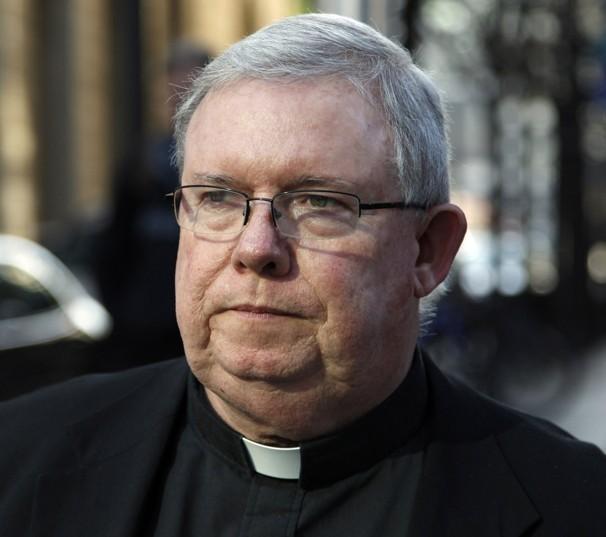What Rev. William Lynn's Conviction Means for the Catholic Church
By Anthony M. Stevens-Arroyo
What, if anything, changes with the June 22nd conviction of Monsignor William J. Lynn for child endangerment? Legally, one can expect an appeal in order to prevent the former clergy secretary for the Philadelphia Archdiocese from serving the maximum sentence of seven years in jail. But, unlike previous cases, this trial was not of a clerical abuser but of a priest in charge of personnel appointments. The court finding substantiates Lynn's culpable responsibility for knowing that such abuse was likely to occur, but endangering children nonetheless by assigning abusers to what we Catholics call "near occasions of sin." There is little doubt that since 2002 the bishops have legislated stricter guidelines that have had the effect of substantially reducing the instances of clerical pedophilia. I would not agree with Dr. William Donohue of the Catholic League, however, that the conviction of the monsignor represents a "victory" over the church's anti-Catholic enemies. Reading the transcript makes it hard to avoid the prosecutors' insistence that the monsignor had "helped the archdiocese keep predators in ministry, and the public in the dark, by telling parishes their priests were being removed for health reasons and then sending the men to unsuspecting churches." This may not be a conspiracy, (one of the charges on which Lynn was dismissed) but it is a crime. To a reasonable observer, this case demonstrates that the courts will not afford clergymen a version of the Nazi's Nuremburg defense that they "were only following orders." In Philadelphia, newly-placed Archbishop Chaput opposes adjusting any statute of limitations on priests accused of sexual abuse. Since the reforms put in place after 2002 have mostly worked, imposing a statute of limitations would maintain current enforcement while effectively keeping old skeletons in the closet. Proponents of keeping the statute of limitations sometimes argue that because many violators during the 1950s through the 1980s are now dead, defrocked or disabled by age, why bother forcing bankruptcy on the church? Conveniently, however, this position also provides cover to prelates like Philadelphia's late Cardinal Bevilacqua who shredded incriminating documents rather than seek justice for children. Still to be decided is whether ecclesiastics can assert a claim the right to follow Canon Law as an exercise of religious freedom. In other words, can bishops and their staff members be exempt from the civil law that protects children from sexual predators? This substitution of church law over public legislation has been affirmed by courts in Missouri, Wisconsin and Utah. While this interpretation of the First Amendment may favor Catholicism on the pedophilia issue, judicial decisions apply to all religions. What would be the impact if courts gave Islamic Shari'a Law equal standing with Catholic Canon Law? The big loser from the timing of Msgr. Lynn's conviction may be the bishops' just-launched Fortnight for Freedom. It would be a disaster for the bishops' authority if the public comes to view this campaign as a smoke-screen to avoid punishing evildoers in the clerical pedophilia. Beware of the fireworks when this campaign closes: it might not be what the bishops expected.
|
.
Any original material on these pages is copyright © BishopAccountability.org 2004. Reproduce freely with attribution.
